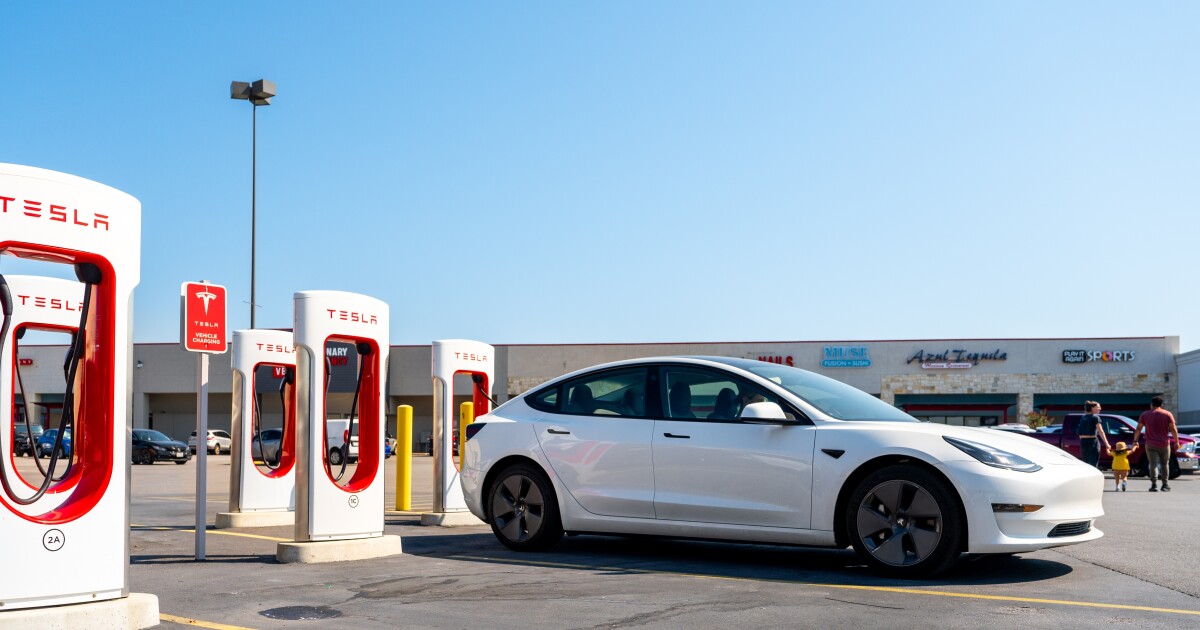Everyone knows that electric vehicles are supposed to be better for the planet than gas cars. That’s the driving reason behind a global effort to transition toward batteries.
But what about the harms caused by mining for battery minerals? And coal-fired power plants for the electricity to charge the cars? And battery waste? Is it really true that EVs are better?
The answer is yes. But Americans are growing less convinced.
The net benefits of EVs have been frequently fact-checked, including by NPR. "No technology is perfect, but the electric vehicles are going to offer a significant benefit as compared to the internal combustion engine vehicles," Jessika Trancik, a professor at the Massachusetts Institute of Technology, told NPR this spring.
It’s important to ask these questions about EVs’ hidden costs, Trancik says. But they have been answered “exhaustively” — her word — and a widerange of organizations have confirmed that EVs still beat gas.



They all suck in their own unique ways. Automotive tires are a leading source of microplastics so EVs aren’t exactly a darling angel, but getting to work has become a 500 billion a year industry in America and framed in such a way that people are debating which car is better for the environment when they’re all horrible compared to mass transit. Because capitalism thrives on frivolity and consumption. That’s the real crux
By insisting on perfect, you are preventing incremental change.
You can buy an EV and have a country invest in transit. These do not need to be exclusive things
Sure. Or I can drive my old car very little and be pissed my country subsidizes a clearly inferior solution just to save the car industry instead of subsidizing way more efficient and environmentally friendly mass transit.
Edit- I think we’re agreeing now that I look at your other comments but I’ll leave this.
Incremental change would have been fine in the 1970s when the world should have instituted it, including incrementally reducing industry to absolute necessities like medical products, and individual developed world quality of life, to find homesotasis with our only habitat.
Now it’s smash the factories today, and accept the hundreds of millions dead breaking those poisonous supply chains, including possibly ourselves, for humanity to have any non-nightmarish future on a planet we terraformed to be hostile towards Human life for the next couple million yers.
But having absolutely failed to institute incremental change half a century ago despite warning, and absolutely failing to take drastic action now that we are just beginning to feel our irreversible fine work, our species clearly and resolutely chooses no future/nightmare susbsistance future, or at the very least there wouldn’t be a pop figure/pointless plastic crap factory left standing in the world. 🔥🤷♂️🔥
What I find the most ridiculous is what we’re doing: resolutely choosing death by actions, while still strangely preaching hope for a future. WuT a weird fucking species we were.
it’s not just capitalism, the US is a very spread out place compared to most other countries. if you want everyone to use mass transit you’re asking them to either 1) move into the city for similar commute times, or 2) spend an inordinate amount of time riding busses around the suburbs for the same distance commute. Neither are good solutions.
And also we have solved the “getting to work” debate with teleconferencing. why should we need cars or an even bigger mass transit system when most people can simply work from home?
That’s the point, nobody wants to move people in the middle of nowhere to buses. Everyone wants these people to move to buses:
That’s like a half-full train’s worth of people if they single-seat, which they do, or 5-10 buses.
Imagine how cooler the place would be if that 16 lane road would be a 2 lane train track.
Eh there are plenty of places that have less population density than the US but they do just fine with transit. It might be true that most US cities are poorly designed for transit, but the density isn’t a the reason.